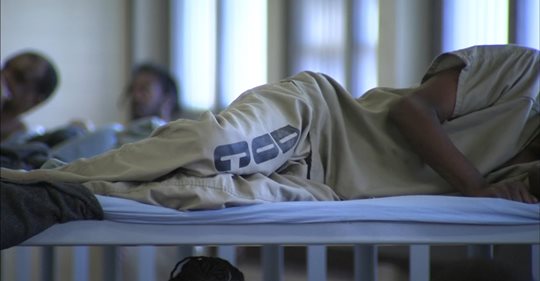ome say unaffordable cash bonds discriminate against the poor, so an Illinois Supreme Court Commission is holding a series of public hearings on the issue.
Some say unaffordable cash bonds discriminate against the poor, so an Illinois Supreme Court Commission is holding a series of public hearings on the issue.
Cook County Jail is one of the largest in the country, yet its population has gone down by almost half over the past four years. The decline follows a new bond reform system where cash is not the only way to get out of jail when charged with a crime.
“I do not believe, we can labor under the false assumption that money is the determination on whether someone poses a risk,” Cook County State’s Attorney Kim Foxx said.
Foxx said before bond reform, the majority of people in jail were charged with non-violent offenses who simply could not afford their bonds. Yvette Mays spent 426 days in jail for a first time offense because she could not post 25-thousand dollars in cash.
“I decided to sit my family down and considered taking a plea not because I couldn’t beat the case, but my family suffered enough,” bond reform advocate Yvette Mays said.
Timothy Williams said his family suffered when he sat in jail for 45 days because he could not afford $10,000 to get out after being charged with a traffic incident.
“It cost me a lot, my job, my house,” Williams said.
Williams joined dozens of others for a rally and then a public hearing by the Illinois Supreme Court Commission on pretrial practices. Many urging the commission to abolish money bonds statewide. Cook County Board President Toni Preckwinkle says reform has not had a negative impact on safety, like some have claimed.
“Eight-five percent felony defendants appeared for all their scheduled court dates and only one half of one percent of felony defendants acquired a new violent criminal charge,” said Cook County Board President Toni Preckwinkle.
But, that’s not the story in DuPage County, where State’s Attorney Bob Berlin said bond reform has resulted in a big increase of defendants charged with serious crimes failing to show up for court.
“The concern is with a lot of these defendants, they don’t get back into court unless they are arrested with a new charge,” Berlin said.
Berlin said the other concern is that cash bonds help fund several judicial programs like drug and mental health courts and restitution for victims. The Illinois Supreme Court Commission will issue a final report in December.







